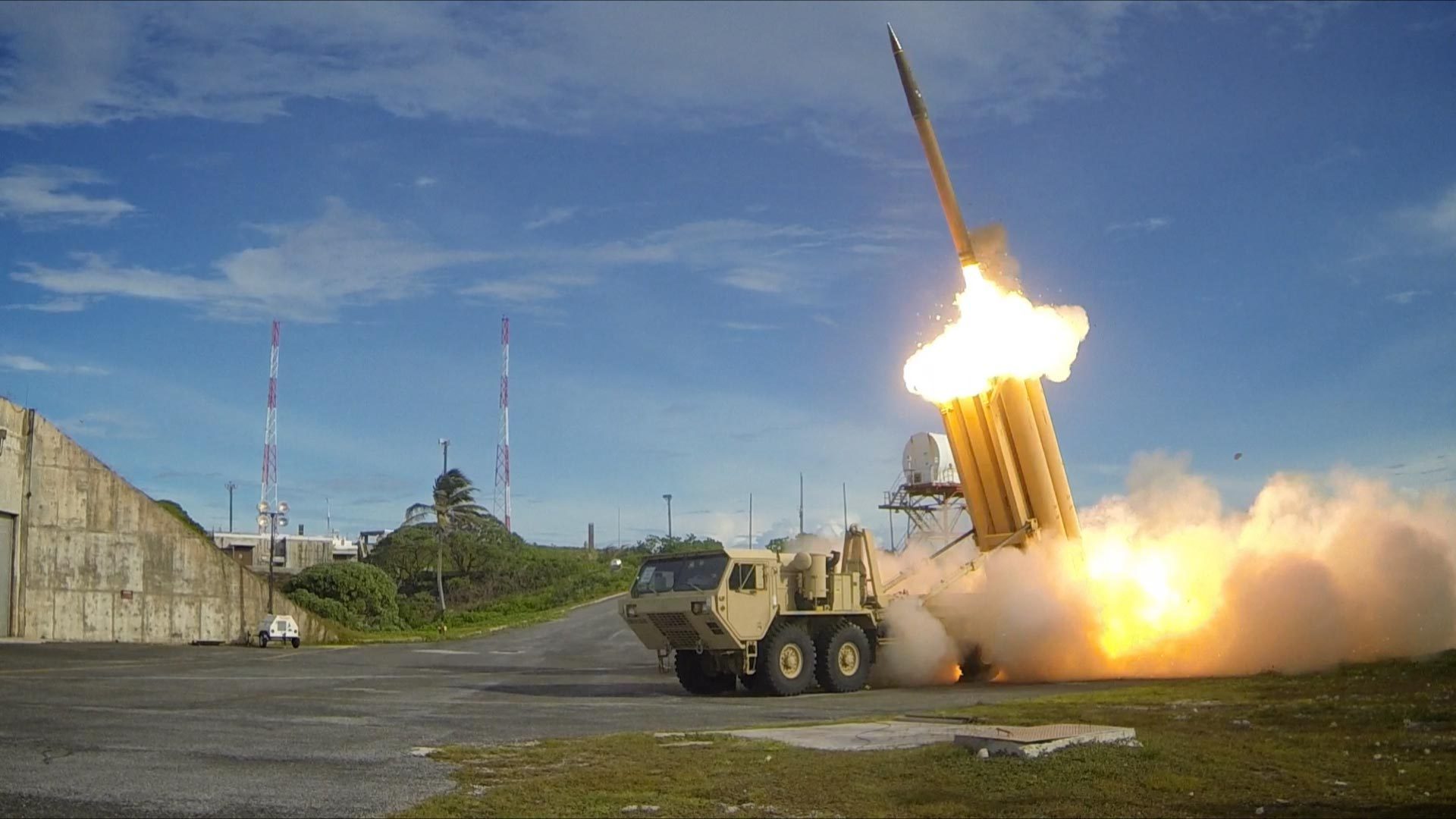
THREAD: western defense
LifeLine™ Media threads use our sophisticated algorithms to construct a thread around any topic you want, providing you with a detailed timeline, analysis, and related articles.
News Timeline


US THAAD DEPLOYMENT to Israel Sparks Concerns Over Army Readiness
— The U.S. has sent a Terminal High Altitude Area Defense (THAAD) battery to Israel, along with 100 soldiers. This move, ordered by Defense Secretary Lloyd Austin and approved by President Joe Biden, puts extra pressure on the Army’s air defense forces. These forces are already stretched thin due to global conflicts. The deployment raises concerns about the military’s ability to upgrade missile defense systems amid rising demands from Ukraine and tensions in the Middle East.
Army Secretary Christine Wormuth expressed worries over the high operational pace of air defense forces, calling them “the most stressed” part of the Army. She highlighted the need for careful consideration when planning future deployments but admitted that unstable global situations sometimes require quick action. The Pentagon stated it would take several days for both equipment and personnel to reach Israel from their current U.S.-based location.
The decision highlights ongoing tensions within the Defense Department about resource allocation for international conflicts and its effect on U.S. military readiness at home. Gen. Randy George, Army chief of staff, noted that U.S. Army air defense forces are in high demand worldwide, describing them as “our most deployed formation.” This situation raises questions about America’s ability to balance international commitments with national security needs effectively.;

WESTERN DEFENSE Failing: House of Lords’ Alarming Warning on Russia
— The House of Lords International Relations and Defence Committee has issued a stark warning: Western defense is no longer enough to deter Russia. Their report criticizes the British Army’s size and capability, stating it cannot meet NATO obligations or handle multiple conflicts at once.
The committee highlights that the Ukraine War has shattered long-held beliefs about modern warfare. Advanced technology alone cannot make up for fewer troops in prolonged conflicts, as shown by the ongoing situation in Ukraine.
The report calls for a “whole of society” approach to national defense, involving civilians in preparedness efforts. It suggests adopting models from Finland and Sweden, where total defense includes significant civilian involvement and strong reserve forces.

NEW SECURITY Bill In South Sudan Sparks Western Outrage
— The U.S. and other western nations criticized a new security bill in South Sudan that allows detaining people without warrants. They argue it undermines political and civil freedoms ahead of the December elections.
Passed on July 3, the bill has jeopardized peace talks and raised fears of arbitrary arrests before the country’s first-ever elections. President Salva Kiir has 30 days to either approve or veto the law.
Nine western envoys, including those from the U.S. and Britain, stated that signing this bill would hinder free political and civic expression, essential for peaceful elections. The U.S. State Department emphasized creating an environment where citizens can express views without fear is crucial for democracy in South Sudan.

UK to RAMP UP Defense Spending: A Bold Call for NATO Unity
— During a military visit in Poland, British Prime Minister Rishi Sunak announced a significant increase in the UK’s defense budget. By 2030, spending is set to rise from just over 2% of GDP to 2.5%. Sunak described this boost as essential in what he termed “the most dangerous global climate since the Cold War,” calling it a "generational investment.
The next day, UK leaders pressed other NATO members to also raise their defense budgets. This push aligns with former U.S. President Donald Trump’s long-standing demand that NATO countries up their contributions for collective security. UK Defense Minister Grant Shapps voiced strong support for this initiative at an upcoming NATO summit in Washington DC.
Some critics question whether many nations will achieve these elevated spending targets without an actual attack on the alliance. Nonetheless, NATO has recognized that Trump’s firm stance on member contributions has significantly bolstered the alliance’s strength and capabilities.
At a Warsaw press conference with NATO Secretary General Jens Stoltenberg, Sunak discussed his commitment to supporting Ukraine and enhancing military cooperation within the alliance. This strategy represents a major policy shift aimed at strengthening Western defenses against escalating global threats.
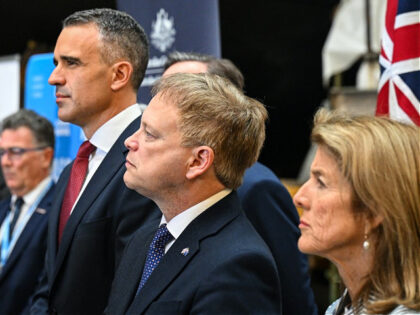
JAPAN Strengthens WESTERN Ties: Set to Boost Aukus Alliance
— During a notable visit to Washington, Japanese Prime Minister Kishida Fumio hinted at Japan’s upcoming role in the AUKUS alliance. Reports suggest Japan is “cleared to join,” marking a significant step in defense collaborations between Japan and Western powers.
The AUKUS alliance aims to enhance Australia’s submarine capabilities and is now eyeing Japan for its advanced technology program. This includes electronic warfare and AI development, with UK Defense Secretary Grant Shapps hinting at high-tech cooperation with Japan.
Japan’s entry into the alliance is poised to advance military technologies like hypersonic missiles and cyber defense systems. Prime Minister Kishida emphasized the importance of U.S.-Japan collaboration on emerging technologies during his Congress address, highlighting its role in global security dynamics.
This expansion signifies a major leap in uniting Western defense efforts against global threats, promoting peace and stability through technological advancement and strategic cooperation among these nations.

DEFENSE BILL Slashed: Allies Fear for US Reliability
— The House gave the green light to a $1.2 trillion defense bill on Friday, which includes crucial aid for Ukraine. However, the significantly trimmed budget and prolonged delays have left allies like Lithuania doubting the U.S.'s reliability.
The conflict in Ukraine, instigated by Russia, has been ongoing for over two years. While American backing for Kyiv has slightly lessened, European allies stand firm. Gabrielius Landsbergis, Lithuanian Foreign Minister, voiced concerns over Ukraine’s capacity to hold its front line based on the quantity of ammunition and equipment received.
Landsbergis also expressed apprehension about Russia’s potential future actions if Putin continues without restraint. He portrayed Russia as a “massive, aggressive empire with a bloodthirsty nature” that inspires other dictators globally.
This is an incredibly unsettling time," concluded Landsbergis underlining the worldwide repercussions of Russia’s unchecked aggression.
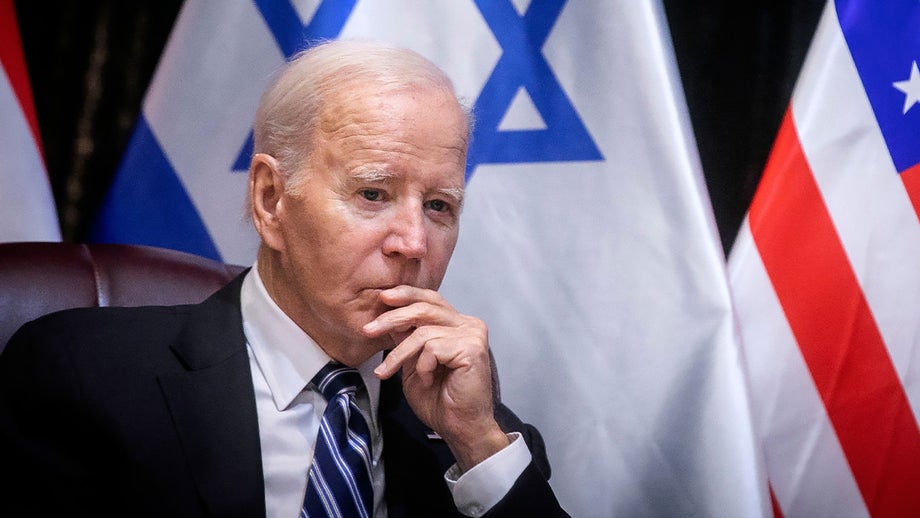
Biden WARNED: Israeli Defense Leaders URGE Against Recognizing Palestinian State
— A group of Israeli defense and security leaders have issued a stern warning to President Biden. Their message is clear — do not recognize a Palestinian state. They believe this move could endanger Israel’s existence and indirectly support regimes known for sponsoring terrorism, such as Iran and Russia.
The Israel Defense and Security Forum (IDSF) sent this urgent letter on February 19th. They caution that recognizing Palestine would be interpreted as rewarding violent actions by Hamas, global terrorist organizations, Iran, and other rogue states.
Brigadier General Amir Avivi, founder of the IDSF, spoke to Fox News Digital about the situation. He stressed that it’s crucial for the U.S., at this juncture, to stand by its key ally in the Middle East and uphold American interests in the region.
In a rare display of consensus on Wednesday, Israel’s Knesset (parliament) unanimously dismissed foreign pressures to single-handedly recognize a Palestinian state.

WESTERN JAPAN in Ruins: Deadly Earthquakes Leave Thousands Homeless and Desperate
— Western Japan is reeling from a series of devastating earthquakes. The aftermath has left at least 30 people dead, countless buildings destroyed, and residents in a state of despair. On Tuesday, officials warned inhabitants in certain areas to stay away from their homes due to the risk of potent aftershocks.“; ”The epicenter of these tremors was the Ishikawa prefecture, which along with its neighboring regions continues to experience aftershocks following a major quake that struck on Monday afternoon. The magnitude 7.6 earthquake has caused extensive damage and loss.“; ”Ishikawa officials have confirmed the death toll and report fourteen people seriously injured. The destruction is so widespread that an immediate assessment is currently impossible. Early reports suggest tens of thousands of homes have been completely destroyed.“; ”Basic services like water, power, and cellphone service are still disrupted in some areas. This leaves residents grappling with their demolished homes and an uncertain future ahead. Miki Kobayashi, an Ishikawa resident who also suffered damage during a 2007 quake said: “It’s not just that it’s a mess...I don’t think we
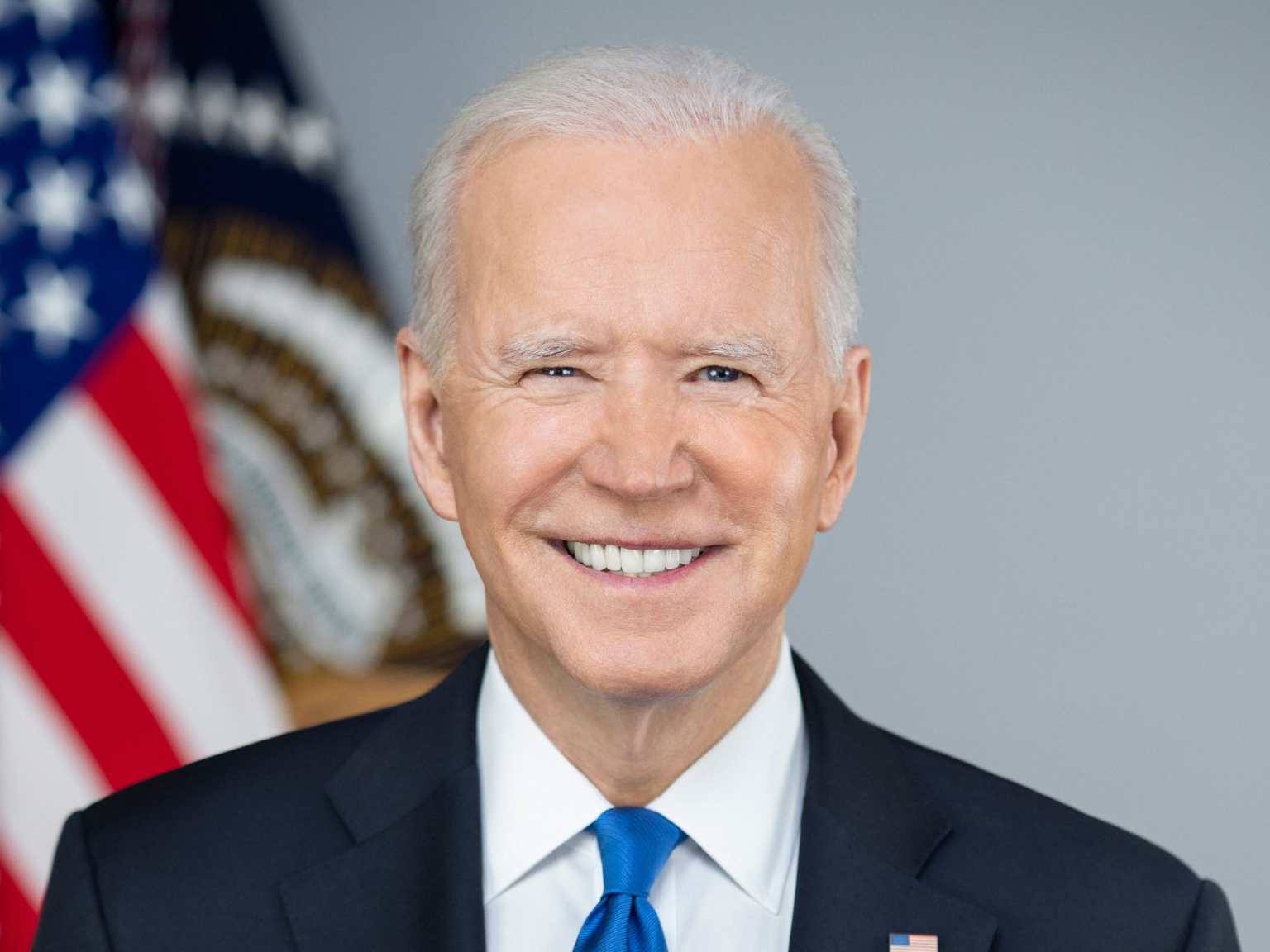
Biden INKS $8863 Billion Defense Act, SLAMS Congressional Oversight
— President Joe Biden has put his signature on the National Defense Authorization Act, green-lighting a hefty $886.3 billion in spending. This act aims to equip our military with the means to deter future conflicts and provide support for service members and their families.
Despite giving his approval, Biden raised eyebrows with concerns over certain provisions. He argues these clauses excessively limit executive power in national security matters by calling for more congressional oversight.
According to Biden, these provisions could force the disclosure of highly sensitive classified information to Congress. There’s a risk this could expose crucial intelligence sources or military operational plans.
The extensive bill, which covers over 3,000 pages, sets out a policy agenda for the Department of Defense and U.S military but doesn’t earmark funding for specific initiatives or operations. Additionally, Biden voiced his ongoing concern about clauses barring Guantanamo Bay detainees from setting foot on U.S soil.

NEW ZEALAND’S Bold Move: Eying Aukus Partnership for Stronger Defense Ties with Australia
— New Zealand’s Prime Minister, Christopher Luxon, is contemplating a strategic move. He’s considering joining the AUKUS partnership to strengthen defense ties with Australia. The AUKUS agreement is a tripartite pact between Australia, the United Kingdom, and the United States. It aims to counteract China’s expanding military influence.
Since his election in October, Luxon made his first overseas visit to Australia. There he and Australian Prime Minister Anthony Albanese agreed on aligning their defense strategies. To coordinate these efforts further, their foreign ministers are set to meet in 2024.
Luxon has expressed particular interest in “AUKUS Pillar 2”. This pillar emphasizes developing and sharing advanced military capabilities like artificial intelligence and electronic warfare systems. Luxon believes that this partnership could be a catalyst for stability and peace within the region.
The U.S. and Britain have already committed to providing Australia with U.S.-powered nuclear submarines under the AUKUS agreement. If New Zealand joins this alliance, it could potentially fortify this tripartite pact against China’s growing regional power.
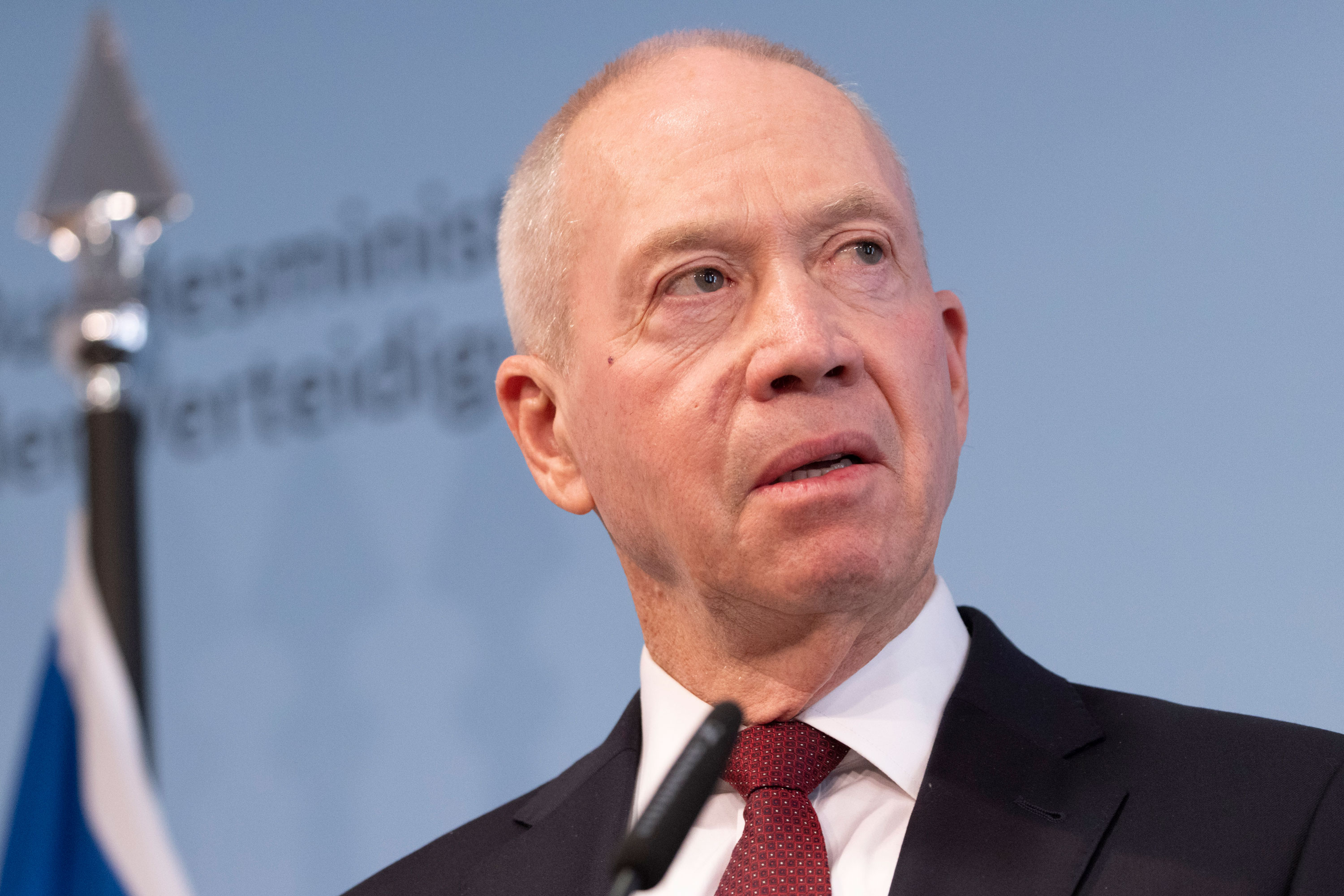
Israel’s Defense Minister STANDS FIRM Amid Global Outcry Over Gaza Strip Offensive
— Yoav Gallant, Israel’s Defense Minister, has remained unyielding in the face of international pleas to halt the military offensive in the Gaza Strip. Despite escalating criticism over a significant civilian death toll and extensive damage from the two-month campaign, Gallant holds his ground. The United States continues to provide unwavering diplomatic and military support to Israel while encouraging efforts to minimize civilian casualties. This operation was initiated following a Hamas militant attack on Israel’s southern border that led to an estimated 1,200 fatalities and 240 abductions. The campaign has resulted in over 17,000 Palestinian deaths and forced nearly 85% of Gaza’s residents out of their homes. Nonetheless, Gallant maintains that this stage of intense ground combat could persist for weeks or even months. In a statement affirming his commitment to safeguarding Israel’s future, Gallant indicated that subsequent stages would involve less intense skirmishes against “pockets of resistance”. This approach necessitates Israeli troops maintaining operational flexibility.

ITALY’S Bold Exit from China’s Belt and Road Initiative: A Triumph for Western Independence
— Italy recently declared its departure from China’s Belt and Road Initiative (BRI), signifying a major shift in Western attitudes towards Beijing’s economic clout. After four years of involvement, Italian Foreign Minister Antonio Tajani noted that nations not participating in the initiative have seen superior results.
The official withdrawal notice was issued by Prime Minister Giorgia Meloni’s administration this week, well before the initial agreement expires next year. This decision sets the stage for an upcoming summit hosted by China with European Union leaders who have lately adopted a more wary stance towards Beijing.
In response to mounting skepticism, Chinese Foreign Minister Wang Yi advocated for mutually beneficial relationships between Europe and China to boost global development. However, such views are increasingly met with suspicion in Europe as Western societies strive to steer clear of economic connections that might give Beijing an upper hand during political upheavals.
Stefano Stefanini, former Italian Ambassador, underscored an official G7 policy termed “de-risking”, spotlighting U.S.'s opposition against Italy’s participation in BRI. Despite U.S warnings labeling it as a “predatory” lending scheme aimed at controlling strategic infrastructure, Italy joined the initiative back in 2019.
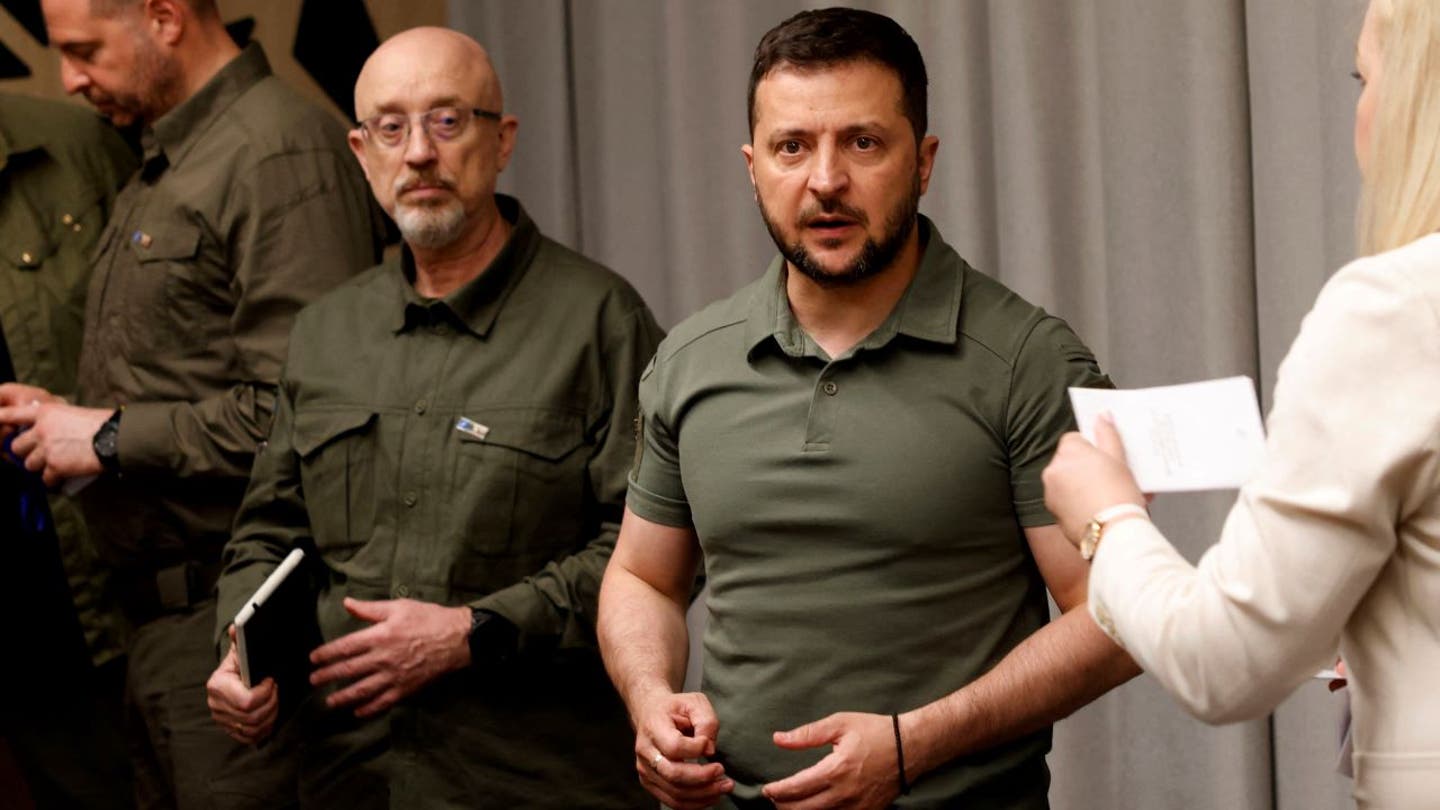
UKRAINE’S Defense Shake-Up: Zelenskyy UNVEILS Umerov as New Leader Amid WAR Scandal
— In a significant turn of events, Ukraine’s president, Volodymyr Zelenskyy, declared a leadership overhaul in the Defense Ministry on Sunday. The incumbent, Oleksii Reznikov, will step aside, making way for Rustem Umerov, a notable Crimean Tatar politician. This change comes after “more than 550 days of full-scale war”.
President Zelenskyy highlighted the necessity for “new approaches” and “different formats of interaction” with the military and society as the driving factors behind the leadership change. Umerov, who currently presides over Ukraine’s State Property Fund, is a familiar figure to the Verkhovna Rada, Ukraine’s parliament. He has played a pivotal role in evacuating citizens from territories under Russian control.
The leadership transition comes amidst a cloud of scrutiny over the Defense Ministry’s procurement practices. Investigative journalists exposed that military jackets were being bought at an exorbitant $86 per unit, a stark contrast from the customary $29 price tag.
UKRAINE’S DEFENSE Leadership Revamped Amid Expensive Military Jacket Scandal
— In a recent announcement, Ukraine’s President Volodymyr Zelenskyy revealed the replacement of Defense Minister Oleksii Reznikov with Rustem Umerov, a Crimean Tatar lawmaker. This leadership transition follows Reznikov’s tenure of “over 550 days of full-blown conflict” and a scandal involving inflated prices for military jackets.
Umerov, formerly at the helm of the State Property Fund of Ukraine, has been instrumental in prisoner swaps and evacuations of civilians from occupied territories. His diplomatic contributions extend to negotiations with Russia over a United Nations-backed grain agreement.
The jacket controversy came to light when investigative journalists disclosed that the Defense Ministry had procured materials at thrice their usual cost. Instead of winter jackets, summer ones were purchased at an exorbitant $86 per unit compared to the supplier’s quoted price of $29.
Zelenskyy’s revelation came on the heels of a Russian drone strike on a Ukrainian port that led to two people being hospitalized. The U.S. Department of Defense chose not to comment on this shift in leadership.

Time SET for EMERGENCY Alert Test Across the UK
— The UK government has announced that a new emergency alert system will be tested on Sunday, 23 April at 15:00 BST. UK smartphones will receive a 10-second siren and vibration alert that will be used in the future to warn citizens about emergencies, including extreme weather events, terror attacks, and defense emergencies.

Video
ISRAEL’S Bold Defense: Military Strikes in Gaza and Lebanon Stir Global Reaction
— In anticipation of the October 7 anniversary, ISRAEL has intensified military actions against Gaza and southern Lebanon. The Israeli Defense Forces launched airstrikes targeting suspected militant sites, including a mosque in Gaza, resulting in 19 deaths. This escalation shows Israel’s heightened alertness to potential retaliatory attacks from groups like Hezbollah.
Israel’s strategy aims to reduce the influence of Iran-backed militants in the region. Officials emphasize the need for security amid global pro-Israel and pro-Palestinian rallies marking a year since the October 7 attack. These demonstrations add pressure on Israel to maintain a strong defensive stance against cross-border threats.
The international community has reacted with mixed responses to Israel’s intensified strikes. Some nations urge restraint due to humanitarian concerns, while allies support Israel’s right to self-defense but caution against escalating conflict. The United Nations calls for caution as tensions remain high across the Middle East.
Israel has increased security measures internally by reinforcing troop presence near Gaza as part of its defense strategy. With diplomatic efforts underway, the region remains tense as it approaches this critical anniversary period that could determine whether tensions stabilize or escalate further.
More Videos
Invalid Query
The keyword entered was invalid, or we couldn't gather enough relevant information to construct a thread. Try checking the spelling or entering a broader search term. Often simple one-word terms are enough for our algorithms to build a detailed thread on the topic. Longer multi-word terms will refine the search but create a narrower information thread.
